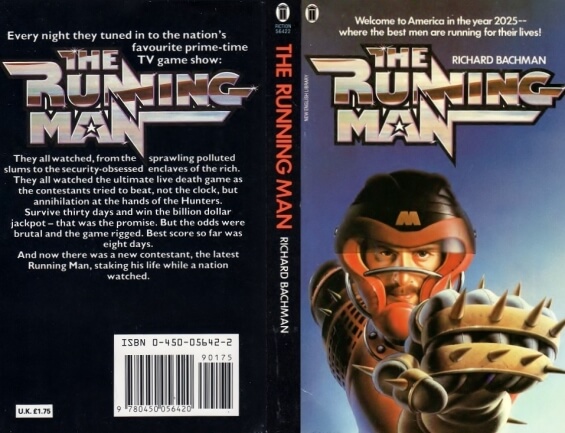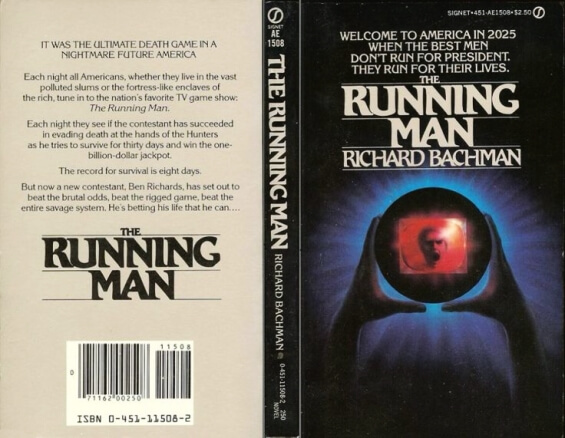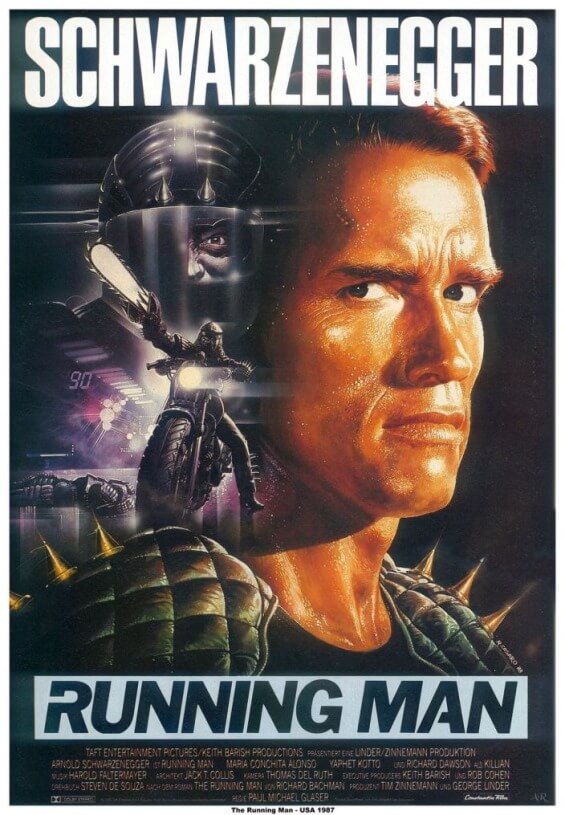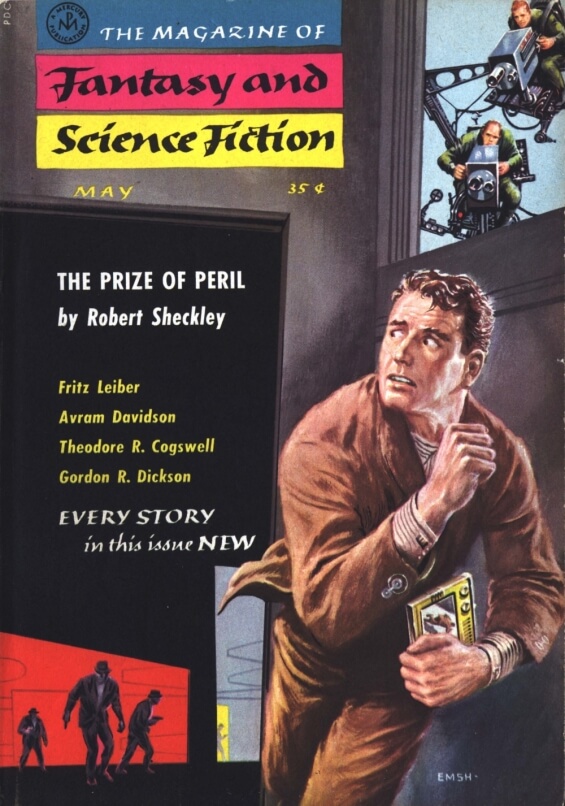
 Reading, Short And Deep #180
Reading, Short And Deep #180
Eric S. Rabkin and Jesse Willis discuss Keep Your Shape by Robert Sheckley
Here’s a link to a PDF of the story.
Keep Your Shape was first published in Galaxy Science Fiction, November 1953.
Posted by Scott D. Danielson

 Reading, Short And Deep #180
Reading, Short And Deep #180
Eric S. Rabkin and Jesse Willis discuss Keep Your Shape by Robert Sheckley
Here’s a link to a PDF of the story.
Keep Your Shape was first published in Galaxy Science Fiction, November 1953.
Posted by Scott D. Danielson

 The SFFaudio Podcast #529 – Jesse, Paul Weimer, and Evan Lampe talk about Typee by Herman Melville
The SFFaudio Podcast #529 – Jesse, Paul Weimer, and Evan Lampe talk about Typee by Herman Melville
Talked about on today’s show:
a peep at Polynesian life, 1846, in which the protagonist is eaten, the island itself is non-fiction, Paul’s theory, Melville wanted to talk about the non-fictional aspects, how horrible western society was treating the islanders, this is not right, his most popular book (in Melville’s life), drawn from life, no one liked his imaginative stuff, the introduction, it proved to be popular on board ship, doth he protest too much?, the appendix, what the French are doing, what’s going to happen?, Evan’s first three podcasts episodes, his time amongst the cannibals, improved style (not improved microphone), writing scripts, 200 episodes, starting with the Lovecraftian element, the South Seas as a place where the Deep Ones made a deal, Dagon, biographies of Melville, lifestyle, wealthy families in decline, Edgar Allan Poe, a genetic East Coast elite white guys, a history of whaling, a literary genetic connection, Chapter 21, one day in returning…, Stonehenge, the druids, peculiar construction, so profound is the shade, he doesn’t believe the natives built these constructions, divine origins, an extinct and forgotten race, musing at the pyramid of Cheops, built upon massive stone foundations, the burying grounds, the race has deteriorated, habitual indolence, incontestable marks of great age, under the direction of Monu, dedicated to the immortal wooden idols, are there stone foundations all over the Marquesas?, this is a book about labour, Pierre and Confidence Man, Herman Melville Wants You To Quit Your Job, Bartleby, The Scrivener, one of the last places colonized by humans, a metaphor?, The Time Machine by H.G. Wells, the white Sphinx is a symbol for us, it baffles us, deep time, a post scarcity society, Hawaii, ravaged by colonialism, breadfruit, the mom, no resentment, profiting from previous generations, universal basic income, young people like tattoos!, colonial gaze, work is going on, not the work we’re used to, alien, salmon runs in the Pacific North West of North America, how much of this story is true?, only there for four weeks vs. four months, why do they want to keep Tomo?, endo vs. exo eating, cannibalism is real, the parallels between the beginning and the middle, Melville is so funny, a delight to read, the lack of food on the ship, poor Pedro the one rooster who ends up in a coffin under the Captain’s vest, all the French ships, taboo, Tomo and Toby, fleeing servitude, fleeing their tribe, deserters, why don’t they want them to flee?, no lack of food, pig and breadfruit and coconut, a long history of indigenous history taking in runaway slaves, John Jewitt, Maquinna, Nootka Sound, the Mourning Wars, Iroquois, you are now uncle Joe (who died), the same phenomenon, all the attention he gets, seen in relief, character list, bathe his body, a local celebrity, in a post scarcity environment, novelty and celebrity, social capital, I know Wayne June!, flee my tribe, all his fears of being cooked, Moby-Dick, Queequeg, selling his heads, essentially married, a delight, Fayaway, tattoos, do your face, in the tribe, becoming one of them, he can never go back, hilarious, a blank canvas, they’re not going to eat him, pantomime, the valley of the Hapars, they’ll eat you, they can’t be trusted, maybe that was Toby, an equivalent of Toby, endocannibals, preserving the spirit and the flesh, the cracker and the wine, she Jesse fear Paul, transubstantiation, concretized, perpetuated dogma, an innate sense of the value of humans, preserving your relationship to your loved ones, a beautiful thing, had the captain kept on his journey, the raft of the Medusa, what happened to the other guys?, The Island Of Doctor Moreau, the narrator ate one of the survivors of the shipwreck, cannibal sailors, Robert A. Heinlein, Stranger In A Strange Land, a sacrament, Mike broth, journeys in the Pacific, Job: A Comedy Of Justice, The Moon Is A Harsh Mistress, Chapter 26, the descriptive chapter titles, the marriage system on Nuku Hiva, popping the question, tedious courtships are unknown, a very tender age, a frolic of the affections, of graver years, as harmonious as so many turtles, supplementary husbands, no wife has less than two husbands, the matrimonial yoke, Marissa VU, 1970s, the roots of Science Fiction, a Silverberg story, a month-wife, what gender relations will be like when you get down the road from birth control, if you don’t like your husband…, a house-raising, this Garden of Eden, a fucking warship, thinking long and hard, as soon as the missionaries come, prostitution, a metaphor for transition, corrupted and twisted, the missionary gaze, the material reality of colonialism, the mosquitoes, flies, not utter heaven, it probably gets hot, a foil for European sexuality, Denis Diderot’s The Supplement For The Voyage Of Bougainville, French and Tahitan societies, women are not considered property, 1780s, those Enlightenment people, Coming of Age in Samoa by Margaret Mead, no property transfer, the slaving system, exogamy, no formal manumission, fix the guns, make the pop-guns, a novelty, an exciting item, the humans have great value in themselves, what’s really going on there, roving feet, greener grasses everywhere, Omoo, his name is Typee, taken to the court of a Polynesian princess, I’ll just be your dude, white people hanging out, behold the glorious result, Christian worship, Honolulu, draught horses, evangelizing beasts of burden, your money, you in your salons, Christianize the Pacific, not doing any good, you’re doing wrong here, the devestation of the pacific, what’s about to happen, six French warships, claim it for the Republic, Liberty, enslave and make an empire, middle 1840s, Empire’s on the books now, The White Pacific: U.S. Imperialism and Black Slavery in the South Seas After the Civil War Paperback by Gerald Horne, the sea-otter fur trade, claims to have eaten Captain Cook’s big toe, white people parties, the flavour of Captain Cook’s toe, the full barrel, a great adventurer, what a shame, fantasize about writing, Magellan killed by the Filipinos and Cook killed by the Hawaiians, Captain George Vancouver, a feat of imposture, medieval relics, the effect of this book, the heads, The Red One by Jack London, the ancient astronauts idea, New Guinea, oral cultures, flexible stories, losing the knowledge of what was known, but gaining value, Bros. Grimm, ossified or concretized, creepy pastas, taking away the sharp edges, Tangled 2, Frozen 2, Moana (2016), for kids, if you’re interested in the frontier, how do the women get anywhere, an arbitrary tabu, [Jesse was thinking of a story entitled The Victim from Space by Robert Sheckley] Robert Silverberg’s Worlds of Wonder, Science Fiction 101, the narrator’s from Earth, giant paws, second pulse of migration, The Monsters by Robert Sheckley, Don’t Forget To Kill Your Wife by Robert Silverberg, a satire of conventions, Colony by Philip K. Dick, I Trusted The Rug Completely by Robert Silverberg, the Pacific is the vastness of space, an alien culture, as alien as anything we’ve ever seen (that’s sentient), first contact, Beyond Lies The Wub, Martian go-birds, the consequences of eating wub, rocket ships and technology, the ideas that are being explored, The Bones Of Time by Kathleen Ann Goonan, the vastness of time and space, King Kamehameha, this nice tourist place, The Brady Bunch goes to Hawaii, a cursed idol, Uncle Tom’s Planet, one thing we know about science fiction writers (they were readers at one time), James P. Crow by Philip K. Dick, dealing with the past in their own stories, as close to Philip K. Dick as you can find, a pretty weird guy, how many stages the rocket has, just a guy who likes writing and likes ideas, not as obsessed with boobs, the sociology of what’s going on in a culture, Bring Me The Head Of Prince Charming, Roger Zelazny, Human Man’s Burden, The Native Problem, distant seas of talking, one of Evan’s favourite passages, climate change, China, Taiwan, not having a job is a humiliating state, make peace with consumption, a lot of moralism, anxiety about consumption, have fewer people, abolish the suburbs, Chapter 31, the girls again, dressing their fair and abundant locks, bathing five times a day, coconut oil, hair gel, the wages of living in this kind of world, not even a podcast even, or writing a book, or writing music, what will we do when we don’t have work?, the Puritan work-ethic, the Green New Deal, people need a job, people need meaningful work, a lot of nail salons, pet stores, pet waxing, no bookstores, a little puppy time, what kids want to do, some girls just don’t go outside, a local dude who wanted to look really fair, Galaxy Science Fiction, April 1957, restless blue-grey seas, a secret desire to be dead, a woman who loves truly and well, I’m through wasting my time, the sin against her father, the most precious thing a woman can give a man (a painful death), the ethos you’ve stepped into, long-pig (human meat), a Warner Bros. cartoon, the volcano god, Strange Eden by Philip K. Dick, Circe, transforming men into animals, why pigs?, the point of that story, other animals mentioned, lions, big cats, wolves, Brent is served meat and bread, is Circe turning men into pigs so she could eat them?, tastes like pork, Silverlock by John Myers Myers, what would have happened to Odysseus?, a fox, trickster, working out his own ideas, such a weird story, a fantasy with a science fiction setting, Piper In The Woods by Philip K. Dick, it could never work as an Electric Dreams episode, Evan is obsessed with work, maybe its a very Melville story, indigenous person, something very appealing about this, that colonial gaze, academic-y terms, Orientalism by Edward W. Said, witches, forming covens, In Thessaly by Clark Ashton Smith, The Golden Ass, transformation into animals, from the 2nd Century, inset tales, Scheherazade, Chaucer, story with the story, Borges, we’re lucky to live in such times, Evan needs to escape work, guaranteed basic income, too hung up on work, rich people bore Evan, Evan’s students resist it, sailor in a land full of Typees, in Marseilles the men are just sitting around drinking coffee all day, the labour movement, 8 hours for work, 8 hours for rest, 8 hours for what we will, working three jobs, she’s not bragging, the fundamental disconnect, industry, economy, hard work, saving, the more moral meaning, these have to be abolished, a cultural revolution, back in China, picking on the Buddhist monks, post scarcity communism, the clock and the time discipline, knights fighting snails, The Myth of the Machine by Lewis Mumford.

Posted by Jesse Willis

 Reading, Short And Deep #112
Reading, Short And Deep #112
Eric S. Rabkin and Jesse Willis discuss The Perfect Woman by Robert Sheckley
Here’s a link to a PDF of the story.
The Perfect Woman was first published in Amazing Stories, December 1953 – January 1954.
Posted by Scott D. Danielson

 Reading, Short And Deep #085
Reading, Short And Deep #085
Eric S. Rabkin and Jesse Willis discuss an episode of X Minus One that adapts Robert Sheckeley’s short story, The Lifeboat Mutiny.
The Lifeboat Mutiny was first broadcast on September 11, 1956.
Here’s a link to an MP3 of the episode.
Posted by Scott D. Danielson


 The SFFaudio Podcast #422 -Jesse, Scott Danielson, Paul Weimer, and Marissa talk about The Running Man by Stephen King and The Prize Of Peril by Robert Sheckley
The SFFaudio Podcast #422 -Jesse, Scott Danielson, Paul Weimer, and Marissa talk about The Running Man by Stephen King and The Prize Of Peril by Robert Sheckley
Talked about today’s show:
What’s wrong with society?, Harlan Ellison talking about Stephen King and Robert Sheckley, so eloquent, dismissing Stephen King, The Long Walk, one of the best science fiction books of the 1980s, at the heart of it, the world, when King was hungry and angry, the introduction, giving it away, a pretty extravagant and great ending, he’s old and angry on Twitter now, he talks good, a distant anger, his attiotufe is what makes the book, The Prize Of Peril is a joke, Das Millionenspiel (1970), the Schwarzenegger, turning anger into a farce action comedy, not even a satire, so much hate, shocking lines, smash her and rape her, when King was very poor, Rage, uncomfortable, connections to actual school shootings, bizarre tie between fiction and action, I’m gonna come up to that floor and getcha, pulling books off the shelves, The Dead Zone, the Dead Zone TV show, the world fits this kind of character, psychological, Richard K. Morgan doesn’t write them this angry, Mr. Mercedes, Take The Money And Run, The Hunted, sticking it to the man, “the internet never forgets”, auto-pulldowns by robots, a disturbing show, Myke Cole, without the killing, so freaky, same ethics and motivation, poor people, Jimmy Dore, half of America is poor, Scott would dispute that, it seems high, American poor, healthcare, GoFundMe for healthcare, hoping to put my kids into college, Paul Bishop, everybody loses the money, Big Brother Canada, horror, becoming a homeless person for 30 days, distributing, why did I like this?, interviewing audience members, a War Of The Worlds-effect, cutting to the control room, former CIA, former FBI, former U.S. Marshall, former British intelligence, this isn’t stacked at all, economic incentive, the mother, the book readers are the heroes, The Prize Of Peril, Raeder = Reader, putting ourselves into this situation, the ultimate protagonist, Killian, stick close to your own people, mapping, May of 1958 (everybody’s doing great), real unemployment 24%, I work three jobs, clown for president, the 1970 movie existential interest in, Too Many Cooks, the sponsor of Das Millionenspiel is Stablelite, male enhancement, Stablelite = the stable elite, The Running Man (1987), tracking real-life trends, 1950s = isn’t this funny (a satire), Sheckley was a god in Europe, The Tenth Victim (adapted from Seventh Victim), an assassination game, keeping violence down, Black Mirror: White Bear, X-Minus One, about psychology, the death wish and the life wish, a suicide option, the voluntary suicide act, Prix De Danger, the Sheckley short story, “Hazard”, “Spills”, “Underwater Perils”, “Terroro”, why Marissa loves this podcast, if we go there…, CBC, CTV, remaking American shows, Canadian Idol, people wouldn’t accept, everything commercialized, even Netflix has this, poor loser helpless people, Fear Factor, you haven’t been poor and desperate enough, I’ll just shoot you then, part of the criticism, that feeling, this Stephen King book feels way more relevant today, air pollution, the media, Sam Harris, the attention economy, status, the environmental sub-plot, thinking about and talking about the environment, only for the lip readers, They Live (1988), a spiritual riff, desperately squeezing, the temptation to power motif, we could use you, a three year contract, standard for a network stalker, you do it to your own kind, Fantasy & Science Fiction, Eight O’Clock In The Morning by Ray Nelson, the trickle down economy, the network editing, agreeing on what real is, subtext, looking at SF causally, SF is reflective not predictive, framing, when a hospital gets bombed, Leonard Cohen, “I’m guided by the beauty of our weapons”, Brian Williams, how much in the context, humiliating interrogation by professionals, a Japanese game show, Trans-America Ultra Quiz, the look and the inspiration is from Japanese game show, The Hunger Games, what it’s all built from, ancient Rome, the tension, I have no idea what I’m supposed to feel, here’s this phenomenon, non-judgemental, the conclusion is not in the movie, you’re watching the host, through the host’s eyes, the Italian French Russian movie, Le Prix Du Danger (1983), surveillance cameras all over England, mailing in your tapes, at the homeless shelter, the meta-issue, Raeder is the first thing you see in the story, we become the Ben Richards, Richard Dawson, Harlan Ellison doesn’t give you his varnished opinion, The Pest, The Most Dangerous Game by Richard Connell, battle royale style, Battle Royale, PlayerUnknown’s Battlegrounds, even a frying pan, the war of all against all, Thomas Hobbes, Paul is tribute, first person shooters, so funny so dark, Tag: The Assassination Game, Gotcha! (1985), thinking about fake news, a cartoon for stupid people, so great and stop stupid, Dweezil Zappa, Mick Fleetwood, Stephen King movies are mostly horrible, 1408, The Storm Of The Century, The Shining, The Mist, “Whitman, Price, and Haddad”, basking under the Maui sun, the big lie, when a revolution becomes show business, he’s a game show host, ultimate reality show, Scott has checked out, Jesse Ventura and Arnold Schwarzenegger two future governors wrestling each other, wrestling as ballet for big guys, set in 2017, when Killian gets his ending, when the truth is known the people will revolt, no agreement on what the truth is, agreeing on what the facts are, brainwashing, it’s not all bottom down, ignorance at the bottom, the school system is broken, teaching civics, getting a good SAT score, good job vs. good citizens, bubbles, the “freeview”, greater than Ray Bradbury’s Fahrenheit 451 or The Veldt, subtlety in The Running Man movie, bread and circuses, healthcare too, vacation time, better education, grow our minds, some clean air (or water), automated manufacturing, technicians, robotics, what will society look like in 20 years?, an opportunity, truck driver, work through what it means, truck guard like Mad Max, the reason for pirates in Somalia, dignity, stepping on his own guts, a dignity in defiance, living with your mom in your 40s or 50s or 60s, food riots, nerve gas in the mid-east, protests did not work, a thin scythe, jellyfish slime, and he’s pimping out his wife, is anybody thinking about it, earlier industrial revolutions, a new Roosevelt with a new New Deal, analyzing art, buying literature written by A.I., kiosks and self checkouts, robots cooking the food, nursing the babies, all a prequel to Wall-E, the soft apocalypse, The Machine Stops, to feed their kid, medicine for the kid, people do that, that’s where the sex industry comes from, the power of a pseudonym, Thinner, Donald E. Westlake and Richard Stark, Kristine Kathryn Rusch, embarrassed about, 100% honest, admire them, The Long Walk, Misery, Steve Brown, 1985, real journalism, you can tell, one thing we know about writers is that they used to be readers, Ben Richards is really well read, fuck off and get me some books, a general atomics novel, book reviews, William Shakespeare, off center of Science Fiction, Stephen King is the gateway drug, The Dark Tower, The Gunslinger, Richard from Richard Stark, a Westlake novel about the pseudonym problem, The Hook, writer’s block, the hall of mirrors effect, King has a voice that is different than Koontz and Dick and Lovecraft, other Bachman books, Rage, Thinner, Misery, his biggest fan, writing the novel in the novel, meta, Roadwork, an interstellar bypass without the interstellar, The Bachman Books, Different Seasons, an official photo of Richard Bachman, Philip K. Dick, Four Past Midnight, The Langoliers, Kevin Kenerly was a terrific narrator, George Guidall, American Gods, damn good listen, damn good book, The Millions Game, after death beauty products, the Kling Klang knife company, a knife for killing your wife, Germany in the 70s was a very interesting place.




Posted by Jesse Willis

 The SFFaudio Podcast #419 – Jesse, Paul Weimer, Marissa, and Bryan Alexander talk about podcasts.
The SFFaudio Podcast #419 – Jesse, Paul Weimer, Marissa, and Bryan Alexander talk about podcasts.
Talked about on today’s show:
podcast hardware and podcast software, Jesse is stuck in Apple’s iOS, Android, does good hardware matter?, Marissa’s Nexus, podcatching apps, Player FM, play later, playlists, Stitcher, speed controls, Downcast (a former SFFaudio Podcast sponsor), volume booster, VLC, Dan Carlin, still in the 20th century, Paul’s decrepit iPod Mini, manual syncing, the iTunes nightmare, space, the search function, Bryan’s crappy internet, Galaxy Note 3, Pixel vs. Samsung S8, sausage fingers, the No Sleep podcast, RISK! offers The Moth style stories, the downsides of Stitcher, bad broadband, isolated on the internet, 30-pin connector, churning iTunes, 5 minute feed checks, WiFi vs. 4g, programmability, the glory days of podcasting, RSS reader, manual downloads, organization, between Google and iTunes podcast search is very hard, iTunes is an abusive relationship, the dwindling of RSS, Google and Facebook, Sam Harris’ Waking Up podcast, autoplay on Facebook and YouTube, the “Tragedy Of The Commons”, the death of RSS, Louis Rossmann: “Repairman Philosopher”, UBC, YouTube search, the world’s single greatest cultural venue: YouTube, the open wild west internet, Secrets, Crimes & Audiotape, their Margaret Atwood’s The Handmaid’s Tale audio drama, the Hulu series, fiction vs. non-fiction, Welcome To Nightvale, Hello From The Magic Tavern, podcasts about podcasts, audiobooks, on the Serial wagon, Missing Richard Simmons, book revisions, S-Town, The Black Tapes Podcast, Rabbits, Tanis, The X-Files, paranormal events, urban legends, investigating an alternate reality game, serial storytelling, serial stories, mystery, the Pacific Northwest, meta-podcasting, almost Borgesian, listening while walking to work, connections, a very Tanis like thing, Wormwood podcast, Escape Pod, Pseudopod, Podcastle, BBC Radio Podcasts, Mythos, the podcast audio medium has infected itself, a gimmick, a gag, Drama Of The Week podcast, William Shakespeare, the Dangerous Visions series, Lenny Henry, The Stroma Sessions, Goodrun’s Saga,The Hatton Garden Heist, King Solomon’s Mines, X Minus One, Fritz Leiber’s A Pail Of Air, Reading, Short & Deep, The Star by H.G. Wells, a terrific new Philip K. Dick podcast We Love Dick, The Philip K. Dick Philosophical Podcast, what makes a good show, start with great material, The Man In The High Castle, becoming stellar, talking through and thinking through great stuff, the hall of mirrors effect, each medium has its own strengths, what podcasts are good at, Decipher Scifi, The Thing, I Am Legend, the science psychology and linguistics, hidden gems, we don’t have a term for this, GE Podcasts Theater: The Message and LifeAfter, like Her (2013), rich and dense, Limetown, a novel for the ear, quasi-fiction, Doorway To The Hidden World, a fictional Alex Jones, fake ads, conspiracy theory, surreality, Suspense Radio Drama or HERE, Robert Sheckley, Fritz Leiber, Far Below, The Horla, Robert E. Howard, Cool Air by H.P. Lovecraft, The Fire Of Asshurbanipal, Fireside Mystery Theatre, Campfire Radio Theater, Earbud Theatre, Signal Hill Radio, The Long Dark, when TV talk-shows trying to act like podcasts, people who make TV shows that have podcasts about their shows, Better Call Saul, celebrity podcasts, even PC games have podcasts, meditation, movie review podcasts, a radio show without a fixed length, The SFFaudio Podcast, Jenny Colvin’s Reading Envy, The District Of Wonders Podcast, Tales To Terrify, primary sources, Luke Burrage’s Science Fiction Book Review Podcast, an emotional visceral reaction, pulling punches, ugly babies, Bryan’s video conference series, we need a YouTube scraper, Wednesday Adamms, Creepy Pasta (from Copy Paste), Slenderman style stories, public intellectual podcasts, sequestering academics, what podcasts are good at, Michio Kaku, a godawful lying idiot, he’s read some books, Stephen Fry, if Isaac Asimov had a podcast, The Bell Curve, race and intelligence, fuck that bullshit, interesting points, challenging, challenge me, make me question my assumptions, Hardcore History, Common Sense, there’s something great about public intellectuals able to do podcasting for a living, Joe Rogan, professional pit fighters, depressed public commentator, podcasts are rebellious (or were), the new main medium, splitting, BBC or NPR or major funders vs. DIY podcasts (like this one), Julie Hoverson, Mr Jim Moon’s podcast: Hypnogoria, the history of zombies, going deep instead of wide, werewolfy, a 15 part series on werewolves, Witchhouse Media’s The H.P. Lovecraft Literary Podcast, Frankenstein, paying for podcasts, actually visiting websites, The Partially Examined Life podcast, academia is sorta screwed, this new “readalong” podcast phenomenon, Nineteen Eighty-Four by George Orwell, Voltaire’s Candide, life sucks: hahahhaha, a thing like that can exist, there’s no other medium that could have a show like this, CBC Podcasts, BBC Podcasts, a first and foremost podcast, aggressive British imperialism, In Our Time with Lord Melvyn Bragg, history, John Clare, something from everybody, Nigel Warburton’s Philosophy Bites, we’ve been held back by idiot television and Michio Kaku for so long, kindergarten public intellectuals, The Lovecraft Geek with Robert M. Price, The Bible Geek, Marshall Mcluhan, the shape of the media informs the content, pity those without podcatchers, The Bible back to front, they’re in your ears, getting together with your friends who you’ve never met, an intimacy to sound, more non-fiction podcasts, Revolutions, The French and Haitian Revolutions, sounds good, The History Of Rome podcast, the Revolution of 1830, so cool, walking around learning crazy stuff, better than university level, HW = homework, The History Of Philosophy Without Any Gaps, the history of mistakes, skip it, always find another, again the big problem of search, avenues and resources, all the best podcasts are via recommendations, an underground now, google’s distinct lack of interest in podcasts, an audio search engine, audio search went away, the weird history of Twitter, like Slack, the Techdirt Podcast, patents, looking at history, copyright and patents, Canadaland, The Young Turks, The Jimmy Dore Show, Slate podcasts, the elite East coast media bubble hates Science Fiction, Behind The News with Mark Henwood, Radio Open Source, The Economist: Babbage Podcast, it has it’s issues, Oh No with Ross & Carrie, joining religions and cults, convince us, how creepy and damaging it was, Outside Podcast: The Science Of Survival, haunting, hypothermia, 2nd person, another Long Dark experience, learning, a thing that happens, of niche interest, Kenneth Hite, Ken And Robin Talk About Stuff, rpg ideas, strange bits of history, Mad Baron Roman von Ungern-Sternberg, twelve weird books, LEGO, good fodder, on the eme of audio, Archive 81, three different levels of sound, a frisson of mystery and horror, Clive Barker, slowly unfolding mysteries.
Posted by Jesse Willis